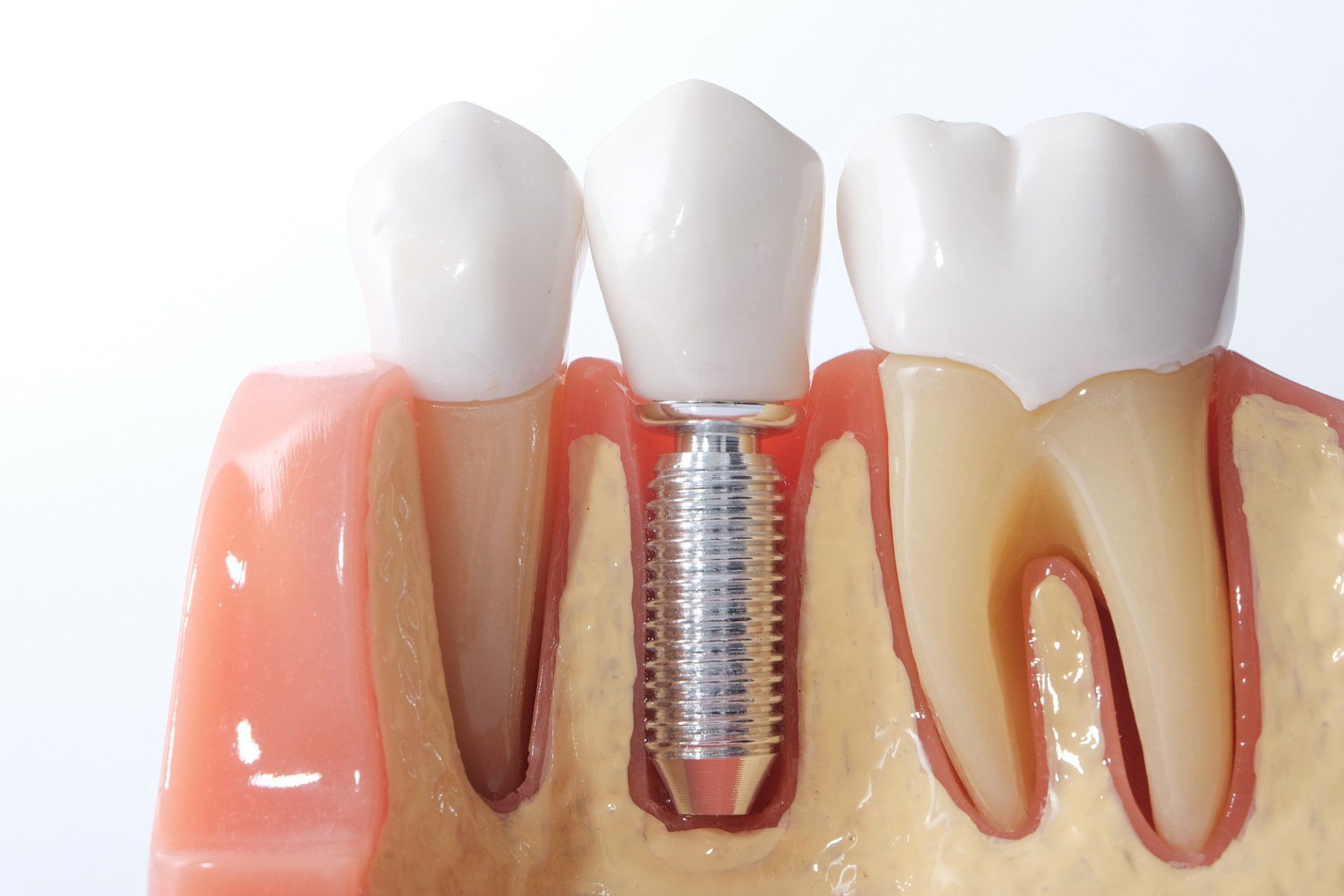How Long Do Dental Implants Last | Dental Implant Lifespan
Are you wondering how long do dental implants last? If yes, you should click here for the important things to know about dental implants.
When properly cared for, dental implants have a lifespan of around 25 years. This makes them some of the longest-lasting dental work available. It also makes them by far the best option for most patients in need of durable tooth replacements.
If you've been wondering "How long do dental implants last?" and if implants might be right for you, keep reading now.
How Do Dental Implants Work?
Dental implants are a form of permanent tooth replacement. They are comprised of three parts.
- Implant
- Abutment
- Crown
The implant itself is a post made of either titanium or, less commonly, zirconia. These metals are ideal choices because they are long-lasting, corrosion-resistant, and antimicrobial. These metal posts are implanted in the jaw and serve the same function as the root of a natural tooth.
The abutment serves as a connector. It screws into the implant, securing the crown to the post.
The crown is a prosthetic tooth. Made of durable ceramic or porcelain, crowns look and function exactly like natural teeth.
Handled by a capable dentist, the dental implants procedure is simple and effective. With one surgery, patients can receive quality implants that will last them for decades to come.Benefits of Dental Implants
In addition to the longevity of dental implants , there are many reasons why patients often decide that implants are the best choice for them. These benefits include implants' durability, attractiveness, and comfort.
Appearance
Dental implants look like natural teeth. They feel like natural teeth in your mouth, as well. This allows you to move, act, speak, eat, and smile with confidence and ease.
Implants restore self-esteem and reduce self-consciousness, improving people's ability to interact with others in healthy ways. With implants screwed directly into your jawbone, you never have to worry about embarrassing or uncomfortable slips, breakage, or misalignments while eating in public, either.
Durability
The longevity of dental implants is impressive, but what many patients don't realize is that implants can also help preserve their larger dental structure. Implants are anchored in the jaw, which allows them to:
- Help maintain the jawbone's structure
- Distribute weight and pressure along the jaw, protecting other teeth
- Prevent or slow the deterioration or loss of bone in the jaw
Comfort
One of the many benefits of an implant is that it will never slip out of place. It will never interfere with eating, speaking, or other common activities. This enables patients to live their lives comfortably, confidently, and free of stress.
Alternatives to Dental Implants
Dental implants are not patients' only option. For patients who cannot or do not wish to undergo the minor surgery involved in the dental implants procedure, there are three primary alternatives.
- Dental bridges
- Dentures
- Dental crowns
Dental bridges are prosthetic teeth held in place by the teeth on either side of them. They come in several styles and may be constructed of porcelain or gold.
Dentures are removable dental prosthetics. They come in full and partial variations and may be constructed of metal, acrylic, or nylon.
Dental crowns are caps put on damaged but still partially intact natural teeth. They are often most suitable for back teeth which typically don't show when you are talking, smiling, or eating.
The Advantages of Dental Implants
While each of these alternative dental prosthetics has its time and place, there are many benefits to an implant. Specifically, implants:
- Last the longest
- Are secure and will not slip, causing embarrassment or discomfort
- Require minimal maintenance
- Look and feel completely natural
- Protect your jaw and bone structure
Ultimately, deciding which option is best for you is a decision you will need to make for yourself with your dentist.
How Long Do Dental Implants Last?
So how long do dental implants last? The post itself typically lasts a lifetime. Depending upon your health, the quality of the implant, and your habits, the abutment and crown portions of an implant can last just as long.
In some cases of hard use or illness, the abutment and crown can deteriorate more quickly. They may need replacing after 15 or 20 years, for example.
Factors That Influence Dental Implant Longevity
Dental implants are designed to be highly durable. How long they actually last, however, is impacted by a series of factors. When dental implants fail, one or more of these factors is almost always at fault.
Oral Hygiene
Like natural teeth, dental implants do best when you maintain appropriate oral hygiene. This includes brushing, flossing, and seeing your dentist an average of twice per year. When your mouth isn't healthy, you become more susceptible to other conditions which might cause your implants to fail.
Hard Use
Implants are designed to withstand the common pressures and demands you place on your teeth. If you apply uncommon pressure on your teeth or use them in other ways, you increase the likelihood of damage. For example, excessively chewing on very hard foods or objects or using your teeth to open corked bottles may cause your implants to fail sooner.
Proper Implantation
You should only have implants inserted by a qualified and experienced dentist. Poor quality implants or implants that are not installed well are more likely to fail.
Location
Implants in the front of the mouth tend to last longer and better than those in the back of the mouth. This is because you naturally apply more pressure to your back teeth, causing them to wear and potentially experience damage more quickly.
Illness and Unhealthy Habits
Health conditions such as diabetes, cancer, and gum disease can negatively impact dental implants' longevity. Bone deterioration and other conditions can also cause implants to fail over time.
Unhealthy habits such as heavy smoking and drinking also cause your overall health to deteriorate in ways that can reduce your implants' life span.
Deciding If Dental Implants Are Right for You
Now that your questions about "How long do dental implants last?" have been answered, it's time to find out if implants are right for you. The Maryland Center for Complete Dentistry in Owings Mills, Maryland offers Dental Implant Services and its skilled dentists can help you decide if you should pursue dental implants for your tooth replacement needs. Contact them today to make your appointment.




